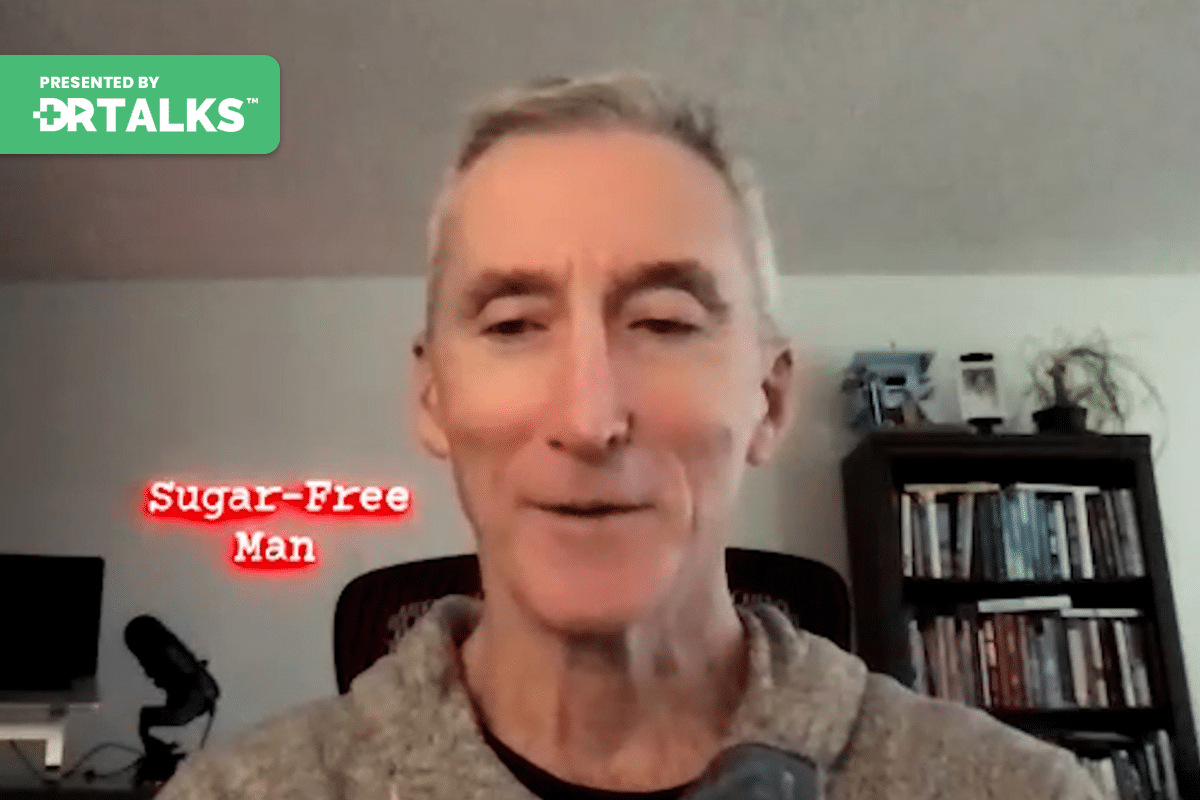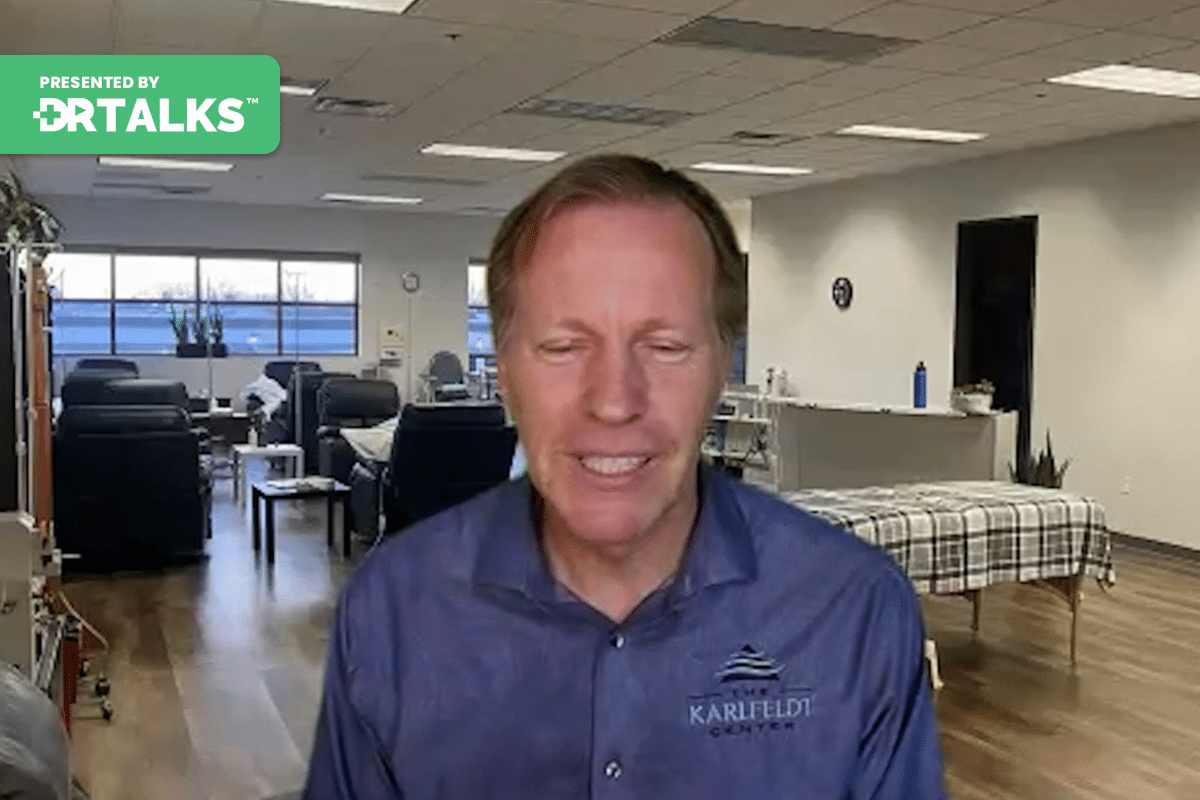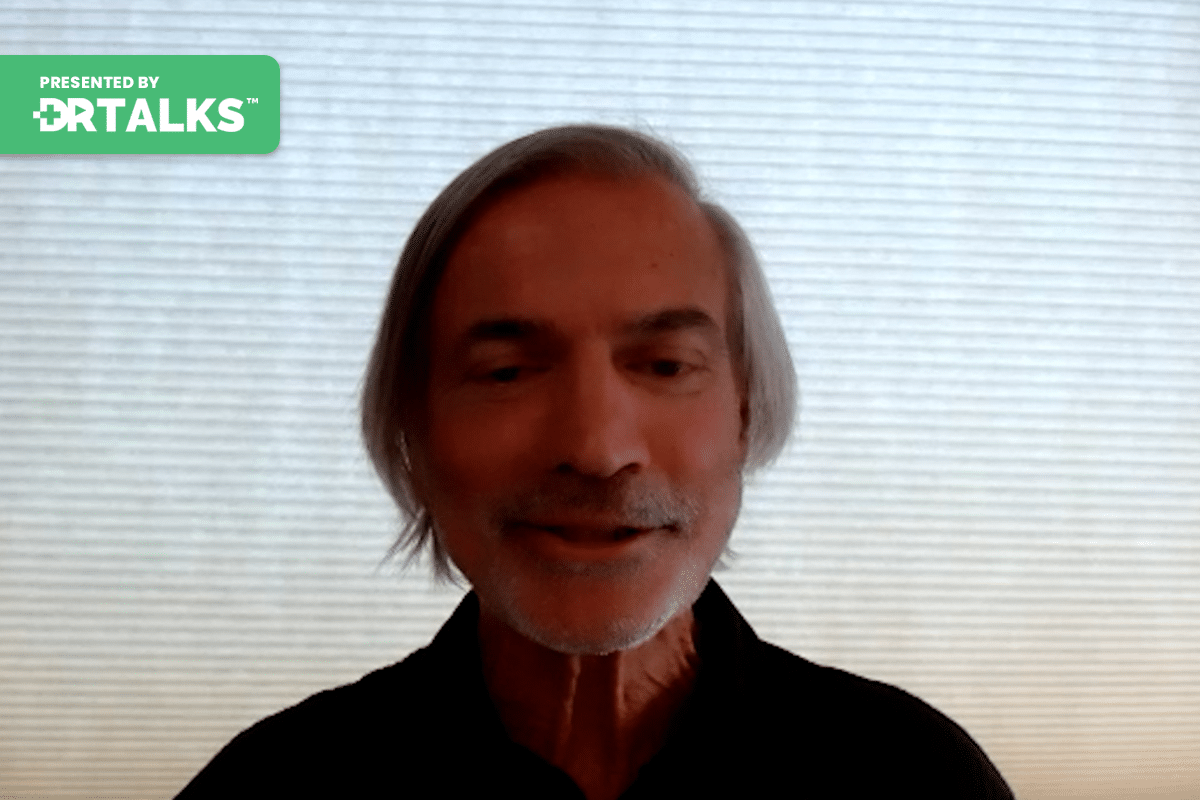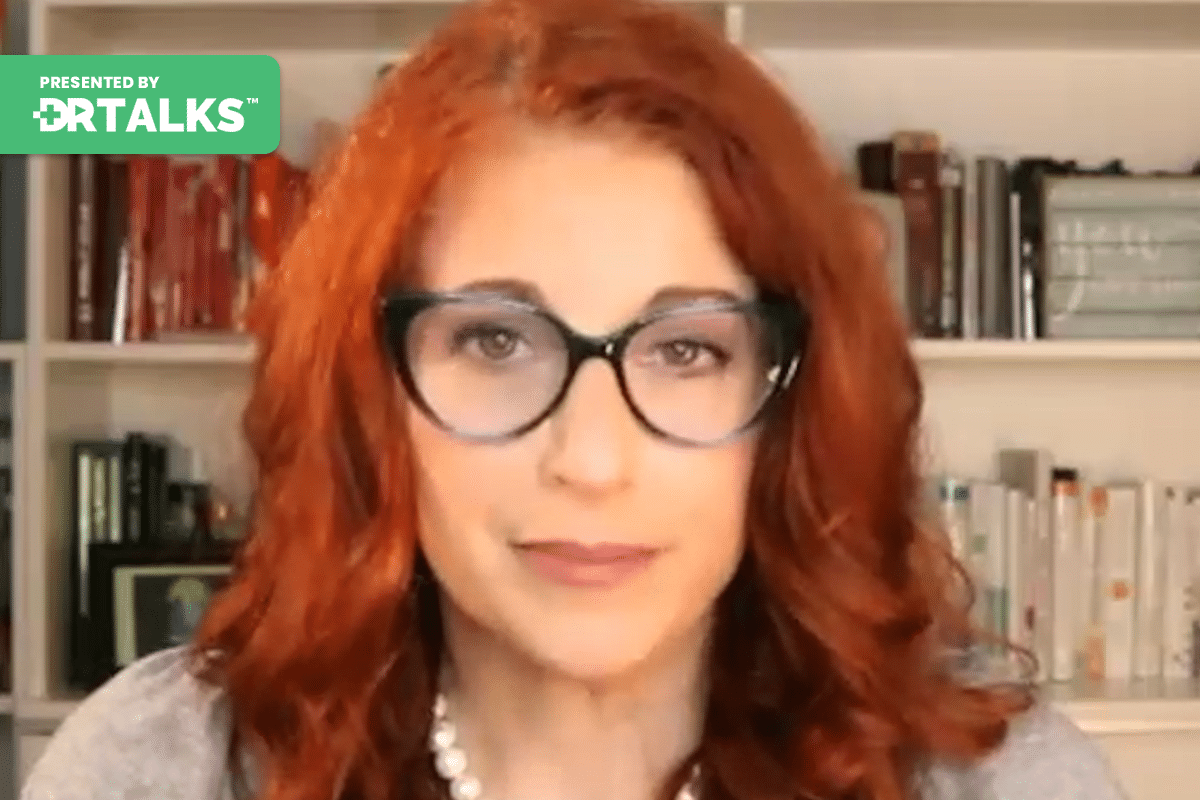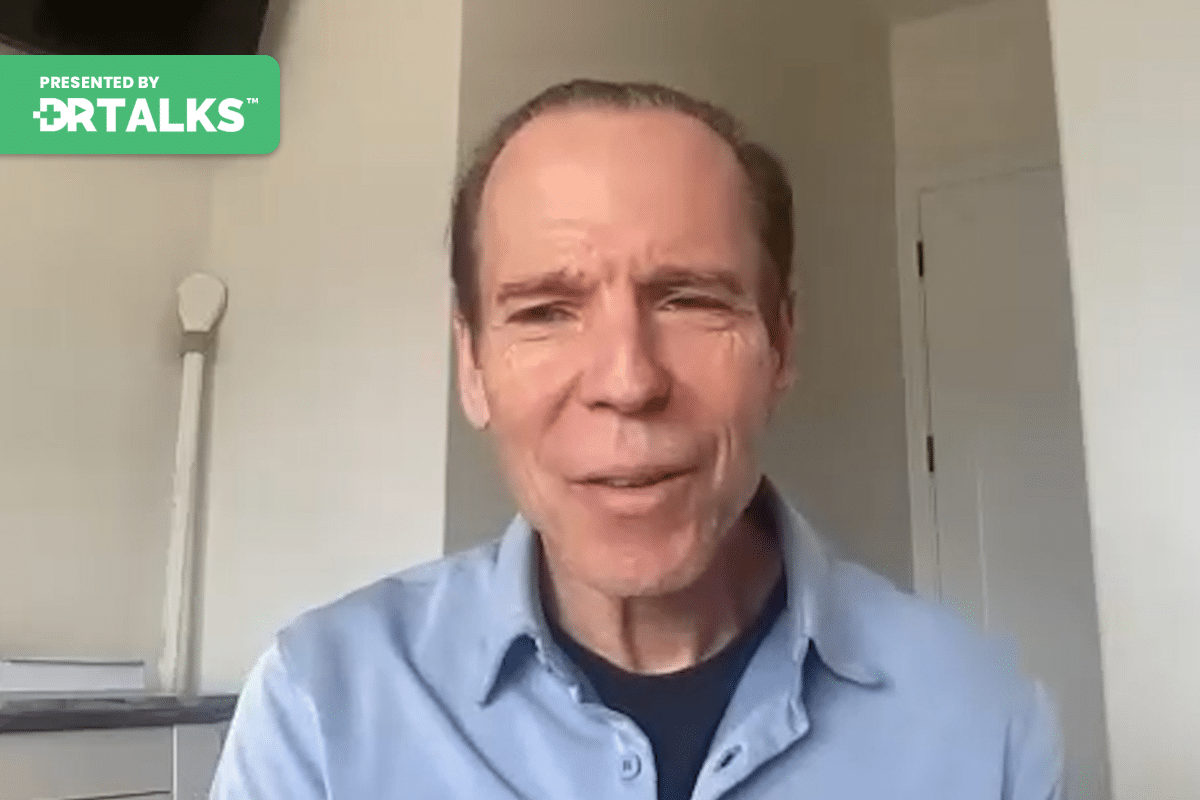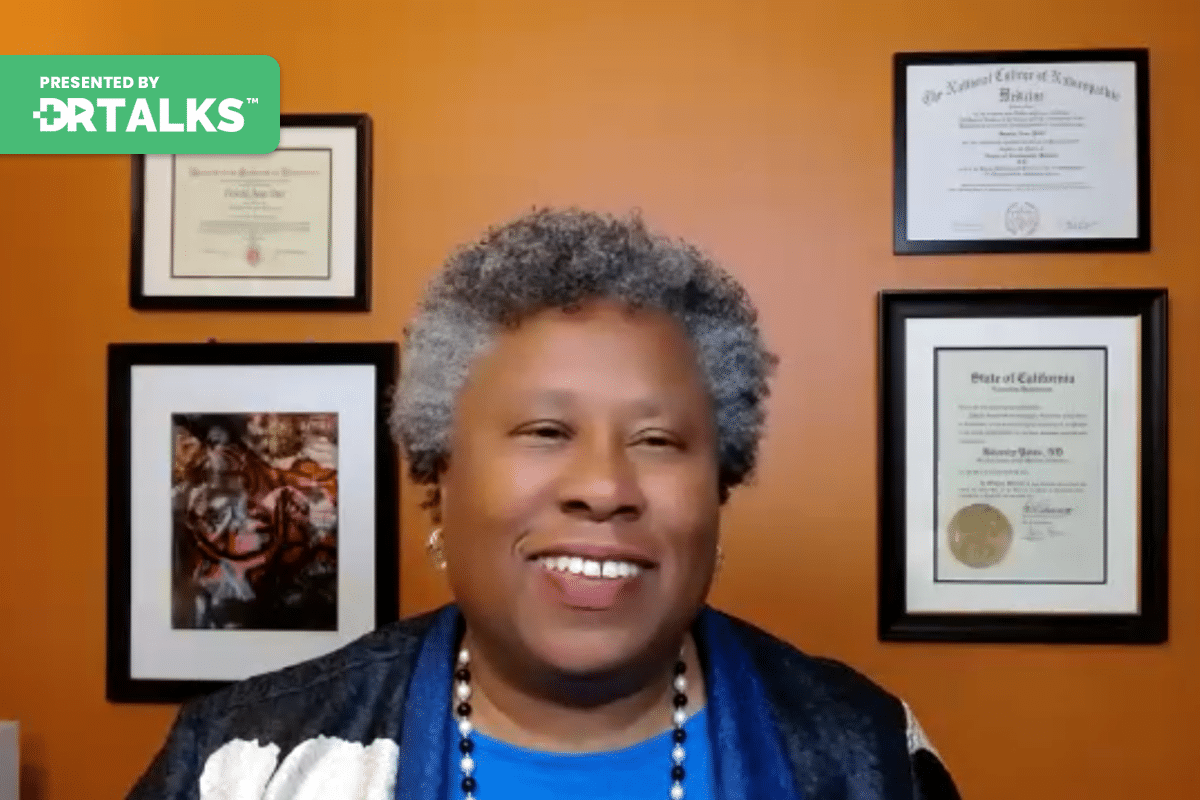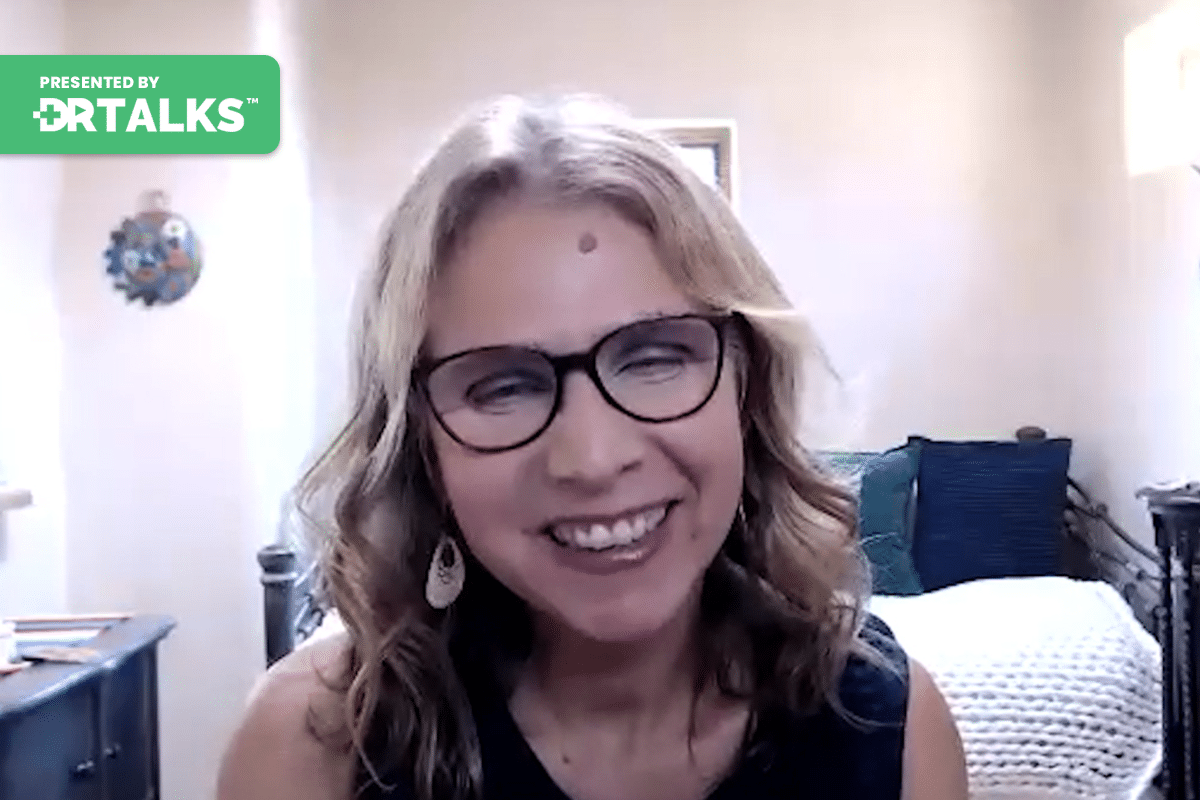Join the discussion below

Dr. Beverly Yates ND is a licensed Doctor of Naturopathic Medicine. She is the nation's leader in online type 2 diabetes care. Her virtual practice has programs and supplements to help people lower their blood sugar naturally, at home, without ever having to step foot in a clinic. Dr. Yates... Read More
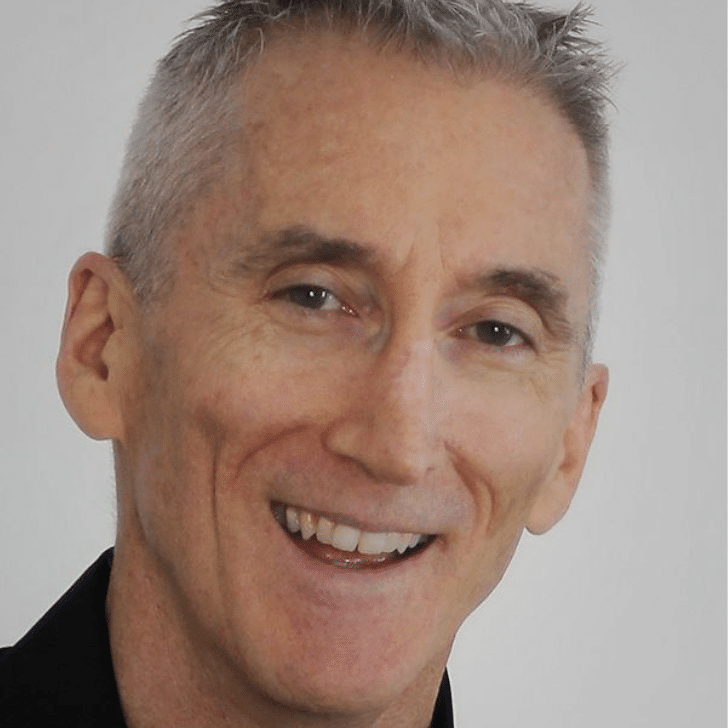
Michael believes sugar addiction is very real and not to be taken lightly. As a person in long-term recovery from substance use disorder for over thirty-eight years, he took a keen interest in what sugar was doing to him and his friends in early recovery. After much research and experimentation... Read More
- Understand that quitting sugar is not just about changing your diet but involves substance use disorder recovery
- Learn how excessive researching on the topic can have harmful effects on your journey towards reversing diabetes
- Gather insights into the transformative power of quitting sugar for diabetes reversal and overall health improvement
- This video is part of the Reversing Type 2 Diabetes Summit
Related Topics
Addiction Videos, Aging, Autoimmune Disease, Autoimmunity, BioHacking, Blood Sugar, Blood Sugar Management, Brain Health, Cancer, Chronic Illness, Cognitive, Detox, Diabetes, Diet, Disease Reversal, Eating Habits, Exercise, Gut Health, Healing, Health, Health Coaching, Heart, Hormone Health, Inflammation, Insulin Resistance, Insulin Sensitivity, Lifestyle Changes, Nutrition, Sugar, Sugar Addiction, Supplements, Weight Loss, WellnessBeverly Yates, ND
Hi, everyone. Welcome to the Reversing Type 2 Diabetes Summit. I am your host, Dr. Beverly Yates, ND. It’s my delight and distinct pleasure to introduce and interview today, Michael Collins. Mike is a good friend and has a very deep experience with the issues around sugar, added sugar, and avoiding sugar addictions. Let me give you a quick brief intro for him. He believes that sugar addiction is very real and not to be taken lightly. I totally agree about that and as a person who’s been in long-term recovery from substance abuse disorder for over 38 years, he has a keen interest in what sugar was doing to him and his friends in early recovery. Any of us who know people who have had issues with substance abuse know this can be a key part of the journey, right? So after much research and experimentation, he quit sugar with the help of amazing mentors. He has raised two children sugar-free from the womb to six years old. And as they grew, he rewrote the rules of sugar, for sugar with kids in childhood. Anyone who’s a parent knows what a struggle it can be to keep the kids away from vats and vats of sugar. He takes seriously his stewardship of sugar addiction dot com, and The Quit Sugar Summit and aims to provide information and community for anyone wanting to curb or quit sugar. All right, welcome, Mike Collins.
Mike Collins
Dr. Beverly, thank you so much. Always a pleasure to speak with you, always fun. We always get some good information out. We have some fun, huh?
Beverly Yates, ND
Absolutely. Absolutely. So we’re doing it again.
Mike Collins
Yeah.
Beverly Yates, ND
So please share with our folks listening to this session, the people watching this. I know when people tune in to a specific session, they’re looking to get some pearls, right? Some tips. Is sugar addiction a real thing? And can quitting sugar reverse type 2 diabetes or pre-diabetes?
Mike Collins
Wow, there’s less. That’s the big, that’ll answer the whole thing right there. So yeah, I mean the problem or the issue with sugar addiction and people, you can basically give this to a one year old, no legal, moral or ethical obligation. So it’s kind of antithetical that you would think that this is an addiction. Like a heroin or even nicotine, right? Where it’s an illegal product, but you can’t give nicotine to a child. And so what’s going on right now is very interesting. Actually, one of our summit guests, Dr. Ashley Gearhardt, is applying to the American Psychiatric Association for inclusion in the DSM, the Diagnostic Statistical Manual, which is the manual that psychologists and psychiatrists use so that you can get insurance coverage on something like substance use disorder, alcohol use disorder. Those kinds of things are already in there but sugar addiction is not yet. So the science is very clear now of the people, over 400 people that I’ve interviewed, experts from all over the world, that it definitely is an addiction. Fits all of the criteria that the DSM lays out for addiction. So it is, in my view, although not yet qualified or included in the DSM, the meeting in San Francisco this year is going to include a presentation to get it in there.
So, yes, it’s a very real thing. I’ve known it’s a very real thing for many years working with clients. I want to tell you genuinely, that 20% of the people that call me for coaching are crying. They have suffered over the decades. We talked about it before we came on. There’s usually a woman, usually 45 to 80 or whatever, and they are crying because they have tried every diet and they just can’t stop it. Somehow they break down when they finally are talking to someone who understands what they’re going through because they’ve tried every diet and they cannot stop. They can do the diet. Whatever the diet is doesn’t matter but if the diet includes, which 95% of them do, quit the white stuff, quit sugar, they can’t do it. So, yes, it’s very real and people should be, it doesn’t get the respect. You remember Rodney Dangerfield, that I don’t get any respect was his tagline. Sugar doesn’t get any respect as a drug, a psychoactive drug. The second part of your question. Is it possible to put remission, put to put type 2 diabetes into remission by quitting the white stuff? And that’s an absolute yes too in my book.
And a couple of hundred of the people that I’ve interviewed, the experts from around the world, and not only type 2 diabetes can be put in remission, we have hundreds of remissions in our groups. Rheumatoid arthritis is also a paper tiger. Most of the time, people who have suffered from rheumatoid arthritis end up going into remission. Not me saying it’s their diet that they’re in type 2 diabetes remission, but they’re doctors saying this, right? And the only thing that they really did was eliminate sugar and flour from their diets. And so, yes, this stuff is brand new. The Verdict Corporation has a 2 billion that’s with a B, billion dollar valuation. And their job, if you will, their business model is to put type 2 diabetes in remission with just diet. And basically the same thing, no flour, no sugar, and it goes into remission. So, yeah, big, big topics there, but important stuff. Good question. And you know, I’m hoping that people, I’m hoping that this information catches on because a lot of people believe that once you have type 2 diabetes, that there’s no other recourse. You’re on either insulin or medication for the rest of your life. And it’s just not true. So good.
Beverly Yates, ND
So when you say it’s not about the food, what do you mean by that?
Mike Collins
I get a lot of pushback on that one because it’s got to be about the food, right? So what happens is that the $78 billion with a B, I say that a lot. Make sure that people discover that it’s not just a million. The $78 billion dollar diet industry that’s yearly, that people spend on diets and trainers and everything else has brainwashed us to believe that the answer to your weight issues, your health issues, is the food, the diet, the shake, the pill. It’s about, you know, and everyone that comes to me, most people come early on thinking about weight loss. They want weight loss, and all they really want is a diet plan and an exercise plan because this is the brainwashing that the diet industry has given us. But in reality, as you mentioned earlier, and I’m firmly, I get stronger on this every day. It takes me a little bit of convincing and it takes about the arc of a podcast or summit interview to explain to people that it really is a substance use disorder recovery. Okay, that’s the none de-stigmatized term for addiction, which all the government websites, everything has been changed to substance use disorder.
This is a substance use disorder recovery, meaning you literally have to relearn, like learning how to walk again. You have to relearn how to manage your emotional state. That’s our biggest message. This is, you have to manage your emotional state differently. Since you were a child, literally, your parents did it to you. You know, you were upset or crying. They give you a cookie and they send you to the TV. And over the decades, what has happened is that you have used sugar and flour, food in general to manage how you felt. Now, it doesn’t necessarily have to be old or they call it capital T trauma, old sexual abuse, or physical abuse. It can be anything very small, but things that you never dealt with. It’s a very common construct in the world of alcohol and drug recovery that if you started using alcohol and drugs at 14 or 15, you stop growing emotionally.
If you were to ever interview a person who has recovered from sugar addiction or a food addiction, that person lost a couple hundred pounds and fallen to a right-sized body for them, that person would not talk about the food. They would not talk about the exercise, or how they did it. They would talk about this emotional recovery. This changes, how they self-soothe, going to yoga, walking, getting a hug, going to the sunset, and making good food. All different ways of self-soothing that don’t rely on sugar. We call it effort-based dopamine versus substance-based dopamine. Right. Substance-based dopamine is hacking your body’s two million year old evolutionary process by sitting on the couch with sugar and effort basis, going for a walk, getting a hug, going to manicure, pedicure, massage, some way to self-soothe that does not include a substance. I can’t stress that message enough. So thanks for asking that question.
Beverly Yates, ND
Absolutely. You know, I think it’s so important that people hear it and understand how much we really are in charge. I can take control of whatever situation we’ve got, no matter how, maybe how unfair the hand has been dealt to us, we can still take charge of it. And we need to know how to care for our vessel, care for our mind, our bodies, our spirits, you know, our souls. And it completely goes against the messaging we get from other places. That’s for sure.
Mike Collins
Oh, yeah. You couldn’t be more right. Look, you know, if people, the biggest, one of the biggest components of this recovery is that you’re going to appear or feel a little bit different than others. You’re going to have to turn down birthday cake and wedding cake. And, you know, all these celebrations, you’re going to have to say a very firm and polite, “No, I’m sorry.” And most, a lot of people don’t want to do that. Let alone be called themselves an addict. You know, people think of the guy under the bridge with the brown paper bag that is an addict to them, not high high-functioning, high-performing individual who has gained two pounds since high school and now is already 40, 50, or 100 pounds more overweight. And it’s pretty much attributed to the ultra-processed carbs so you have to be a little bit different. You have to be socially, honest to goodness, doc, 80% of the people that come to us to try and do this do not have the support of their spouse, their own family. The spouse hasn’t been through the angst and the diets and the trying and they don’t want to change the way they’re eating. So it’s like really, it’s that social piece of the puzzle that you mentioned is super important.
Beverly Yates, ND
Yeah. So when we talk about that social realm, right, you know, it’s so important to have community and people around you who are supportive and to not be struggling everywhere you look. And for some people that’s more of a challenge. For some people, that’s an easier place for them to exist. So if you think about this, you know, please share with us one of the roles that emotions are people’s feelings. What does that play in changing their relationship to sugar? Because I’ve seen in my patients this can often be the crux of the work.
Mike Collins
Well, I always tell the story that, you know, my favorite junky for Sugar Junky was my mom. My mom was she believed sugar was love, genuinely died, passed away believing that, and she died of Alzheimer’s. But in my world, she did not die of Alzheimer’s. She died of sugar addiction. At the end, minus the filter in her brain, and as her brain started to fade, all she wanted to do was sugar. All she wanted to eat was sugar and it started when she was eight years old. Her mother died. My grandmother died when she was only eight years old, and my grandfather set up this deal with his cousin who owned the store across the way that anytime that eight year old came in there, she could have any candy she wanted just put it on his tab. Now, that was a wonderful gesture for an eight year old who just lost her mom but the reality is that’s how we grew up. We had unfettered access to the Sugar Bowl. We could put as much sugar make. She didn’t say stop, that’s too much nothing. And the Cheerios and the cornflakes, we made, you know, Kool-Aid with three times the recipe. It was crazy, it was insanity, really. We made these big giant bowls of cookies. We were eating cookie dough before cookie dough was cool. I mean, literally, she just believed that giving children sugar showed them that you love them. Right. And this happens everywhere. The cooking that families do, the baking that families do. All of this stuff like it, it’s been enculturated that this is a thing of love. But what it trains people to understand is that they can soothe difficult emotions with sugar. And this is a real unconscious thing. My job is to break that and bring it to the surface, bring this to the conscious level, because, look, even a child can score and that’s a decided druggie term. But they can score sugar right when they’re upset. And adults, once they’re self-medicating after they have their own money, you know, they’re out of the house at 14 or 15, they can get the sugar that they need to feel less anxious in school, less anxious in social situations. This leads to what we discussed earlier was the management of emotions, the emotional systems in the body, the dopamine, serotonin, norepinephrine, GABA, cytosine, adrenal, the cannabinoid receptors, all of your brain reward, chemicals that affect your brain and your emotions are affected by this drug. And literally, they’re downregulated, dopamine receptors are downregulated. When I use the word dopamine, I mean all of those things, the whole constellation, right? But they’re downregulated and they’re thinned out. You have less of them. And this is very clear scientifically now we know why this is happening.
There are a lot of studies now, a lot of peer-reviewed studies that show how sugar affects your brain and your emotions. And so I always tell people, if you really want to get off sugar, you need to look at it, frame it this way, not as a diet, not as a, you know, health and wellness, eat good greens or healthy fats. But to understand what sugar has, how you’ve trained yourself and your body and your emotions to deal with life’s regular stressors and old stress and stuff that might come up as you get off it because it will happen. The common refrain is like, Mike, I’m losing my mind. And this is what happens about days 5 to 10 because this is the first time in your life you’ve never had sugar, right? And you can’t really understand what’s going on, how you feel in your body because you don’t really know that, that you didn’t really know that’s what you were doing to yourself because it was always available and you would just have it. And it was an unconscious process that, again, we have to bring to consciousness. So again, it’s difficult to tell. Lay the whole arc out in a now, you know, 40 minutes or 45 minutes. But that’s the core message. So thanks again for asking that question.
Beverly Yates, ND
You are welcome. So in this context, you know, people have this physical sensation, they have the physiological issues underneath, they’ve got the emotional pieces, the social habits, You know, all these different things come into play. So what is it that you mean when you talk about things like peer recovery support?
Mike Collins
Yeah. No, I love that. So in the world of drug and alcohol recovery, there’s a cool phrase and what it is, and a lot of people know about the 12 steps and there’s no mystery that you know, that I came from that background, that in recovery from alcohol and drugs treatment, a treatment center 30 days or 28 days is discovery and then the meetings are recovery. I mean, that’s how you stay off drugs. You change. Right. In our world, what we’ve done simply is poured over two of the most famous and underused processes in recoveries in general change, transformational change in general. And the main one is what you mentioned, peer recovery. And peer recovery is really one of the most powerful healing modalities on the planet. Let’s just take addiction and drugs and everything and sugar out of it and let’s look at cancer or kidney dialysis or any of these things. If you join a peer support group after you’ve been diagnosed and treated for cancer, your chances at long-term remission go way in hell, up to double and triple in some cases. And there are hundreds of peer-reviewed studies about that. Same with dialysis, same with a lot of things. Forget about the drugs and alcohol. Well, it is truly the recovery, this ability, as we mentioned, socially to meet with people who are doing exactly what you’re doing and moving forward. And a phrase I love is you become the average of five people you hang around with the most. Well, now there’s peer-reviewed science that says you become the weight of the five people you hang around with the most. Right? So these are very powerful, we are herd animals, right? There’s something called mirror neurons. We like to be like the people around us, Right? And think about it. Back in the day, if you left the tribe, you could die. If you got separated, you could die.
And so staying tight with someone and remember back then when we talked about, like a lot of times you don’t have support inside of their family of origin or their workmates or their schoolmates. So they need to join this new tribe. They need to be involved with people who are actually doing what they want to do so that peer support is super important. And the other one and I want to mention this because a lot of times when people listen to me speak, they say that what I, my prescription for wealth or yeah, wealth and health is a little bit too drastic. So one of the that’s 100% abstinence. Give me 90 days of 100% abstinence. I call it a scratch test. If you were to go get a test for allergies, they would scratch you for dust and pollen and stuff. My scratch test for you is to give me 90 days of 100% abstinence. Right. But that said, that will give you an indication of what your body can do and what it is. And you know how much of your weight you will lose and how your skin will look better and all these other.
But now another part of this, and I really want to emphasize this is super important is that harm reduction is also this is needle injection site, suboxone, methadone, anything that brings down the chances that you would die in that scenario. But in our scenario, it’s like any amount of sugar reduction is good. Okay, that can get you started. That’s harm reduction in the sugar addiction world, right? Just start. Start with sugar-sweetened beverages. Get them out of your life. You don’t need to drink this stuff. I mean, it’s already in the food, 80% of the food. Try and cut back on the blatant candies and cookies and pies. But any amount of reduction, any harmful reduction in sugar is a good thing. Right? And if you decide that you’re an addict, that’s up to you. Okay. There’s a cool set of numbers that came from the Food Addiction Institute, which is also making an application to get the DSM certification or whatever. And it really is a certification, but it is anyway. And that is that about a third of people are biochemically. This is a decade of work and professionals are biochemically unable to ingest sugar without setting up massive cravings for more sugar. And then about a third of people are what we call harmful users. These are people, like I mentioned, they’re just kind of normal. But because there’s so much sugar in the diet and the food and the treats and everything, they may be able to go back to occasional use. They may be able to get cleaned up, do a detox, and move on. And then there’s the last group who we all hate because they can just take it or leave it. They’re just like that friend who can, you know, just eat half a cookie and don’t even worry about the rest of it. But I do want to. It’s so funny because those numbers, a third obese, a third overweight, and a third normal size in the obesity numbers, the does can track with that. But the last qualifier on that description is that you can be a very thin sugar addict. I have Olympic athletes. I have three ultra-marathoners, one of my coaches just posted on Facebook. She ran 600 miles for some crazy thing and she was carrying 20 pounds extra all during this training, like because of the sugar. And in doing all this exercise. So it’s a fascinating topic to me. Obviously, maybe I’m speaking too fast or throwing too many things but know you want to get it all in because you see so much suffering out there. It’s just kind of hard to watch. Yeah.
Beverly Yates, ND
Yeah. Particularly if you know that there are other options or that there’s a way in which if people just understood a few key concepts, you know, now they can take hold of it and they may be free, you know.
Mike Collins
100% exactly right. That’s why some and I’m sure absolutely you see it all the time.
Beverly Yates, ND
Yeah, we see it all the time. You know, you see these online summits, people put out quality content because we’re trying to educate and reach people and encourage and give them hope and clarity.
Mike Collins
Yes. 100%.
Beverly Yates, ND
And so in the work that you are doing, Mike, and all your experience, you know, which is really deep and profound in this area, we all know that people go to the Internet, social media, other friends, family, etc. to get information and advice. So what are your thoughts about, you know, what does it mean that research can potentially harm folks who are trying to quit?
Mike Collins
Oh, my God, I love this topic so much. It’s so interesting to me. I’ve done entire webinars on it, so I’ll try and do it justice in 5 minutes. But here’s the thing, and this blew me away when I discovered it, right? These people that come to me are so knowledgeable, got doctors, therapists, you know, M.D., Ph.D., gym owners, dietitians. I got these people that are brilliant people, right? And they know they know a lot more than me, most of them about the diet and the, you know, the exercise part of it, the food part of it. Chefs, I got. I mean, people come to me really well understanding and, you know, understanding of the health, quote-unquote, health, and diet-related subjects. But here’s the thing, they can’t get off the sugar. They can do every part of the diet that they but they cannot get off the sugar. And so what I discovered was I just it just out of curiosity, I Googled dopamine. Information gathering and dopamine. And I ask you folks to do this right. Just Google those three words, information gathering, and dopamine. And what comes up is hundreds of pages of peer-reviewed studies of the ability for information gathering to be dopaminergic. I love that word, dopaminergic, that it creates dopamine. Okay, so look what’s happening to the folks, right? What’s happening is they are. Yeah, they’re like information, information, information, and then a little sugar, information again, then sugar. They literally continue doing this, I don’t, what’s the right word? Like this manipulation of their dopamines, the dopamine process and again when I say dopamine, I mean all of the brain reward chemical serotonin or benign oxytocin, all of them.
And so what I found and this happens with talk therapy too look, people have been in talk therapy for their weight and health issues for decades, decades, 10 years, 15, 20 years. People in substance use disorder recovery, sober alcoholics, sober drug addicts, they’re all trying to quit the sugar. They’re going to talk therapy because they’re 100 pounds overweight. The problem is this rollercoaster of sugar and information gathering sugar and information gathering back and forth, back and forth. And here’s the answer to this. You cannot even expect talk therapy to work for all this information, all this brain power that you’re exerting on this problem pre-abstinence. It has to be post abstinence and then it becomes a positive. This means you have to get off the sugar and the flour before you begin this new process of more research about more health things. Okay. And that is been the most amazing revelation.
I call the people in our group tweakers, not the methamphetamine tweakers. These are the people that are tweaking their diet just enough after they’re sugar-sober if you will. So off of sugar and flour, then it becomes like running, it becomes like yoga, it becomes like that emotional management tool. Now you have a positive outlet for dopamine gathering that will help you change your diet. Now, you may decide you want to be vegetarian or you want to be a carnivore, or you want to be a runner or you want to whatever. Maybe there’s another underlying disease autoimmune that you want to work on or whatever.
But I would suggest that if you get off of the sugar first, give me those 90 days, give me 90 full days, no flour, no sugar. And in our group, we say no caffeine because it’s wired the same way. The chocolate, the tea, the coffee there’s a fire in the same stuff, dopamine, and everything. And it keeps the cravings alive. But if you can get off of all this stuff and then rebegin your research. Just take a time out. A through a break from your research and get off the sugar and flour, get through the withdrawals, get through the early stages of your recovery, and then begin researching again. You’ll have much better results. It’s been an amazing like elevation of our success stories because they finally understood this concept. So it’s a good and it’s kind of counterintuitive. You figure, well, I know more about it than I should be able to do, but one of the phrases I love is to know, and everybody comes to me knows their sugar. They even say I’m a sugar addict. To know and not do is to still not know, right? You are not. You have knowledge, but you don’t have wisdom. Right. So very important stuff. Thanks for asking and I appreciate it. It’s just, it’s been mind-boggling since we discovered it.
Beverly Yates, ND
Yeah, I could see that would be transformative. Right? I know. Certainly, my work for diabetes and blood sugar and glycemic control that people will Google the most amazing things, but they don’t necessarily put that same energy into the basics of lifestyle that make that difference. Right. I get it. Thank you for bringing that up. I’m sure people will be like they were going to recognize themselves and it’ll be another moment of insight. So make sure friends are taking notes. Share this session, all of these recordings this summit, with everyone you know and care about them, because this is key. This is a key moment. Okay. So now would you share with us, Mike, how is it that the brain is changed with sugar? Like how does sugar change the brain and our emotions? Because I think for some people, in fact, probably for all of us, this is a pretty tight loop.
Mike Collins
Yes. Yeah. No, it’s oh, look, one of the things that’s happened to me over the last it’s been seven years. I’ve interviewed over four, 400 people, and I’m in a blessed place because I get to see even though their work is different from each other, I could just see the whole gamut of the work that’s done. And most of the work now is in addiction, regular addiction. I shouldn’t say it that way, but in addiction in general is about brain stuff. It’s a brain disorder, a brain disease. It’s you know, Chris Palmer’s amazing new book, Brain Energy, is about that. Basically, all kinds of mental illnesses and mental problems and issues are metabolic issues, right? It’s a diet issue. And the more important part of this is for children too and adults is that literally, you are wiring your brain in a different way. You’re wiring your brain. You’re literally digging neural pathways in your brain right to adapt to consistent re-ingestion of the sugar.
So again, back to the effort-based dopamine versus the substance-based dopamine. You’re manually manipulating your brain feel goods this frontal cortex, this nucleus accumbens where the control the memory, the thought process, the thinking of, all this stuff is is stored, it becomes literally not, it’s not part of your brain. It’s now back in the base of your brain, in your limbic system. Okay. And I love the phrase Dr. Bruce Perry talks about where the brain was built from the bottom up, right? And your limbic brains, controlling your sugar, your breath, and your heartbeat, and all this other stuff. And so literally, it pulls blood. They’ve done all the like MRIs and so they watched this on and you know, MRI’s and everything. It’s pulling blood from your thought process your emotions, your feelings, and your management system back to your limbic brain, your base brain to get this hit of the opening. Okay. And you’re literally losing blood when you’re ingesting yours. And it’s just really been the science that I’ve watched evolve over the last six or seven years to understand that you’re not looking for a sweet taste in your mouth when you ingest this product. This is very key. I always say write this down when I say things like this. Write this down. You are looking for a dopamine hit. You are looking for that 710 million-year-old, at least 300,000 since we are homo sapiens, that little evolutionary reward that you would get for finding berries, finding whatever food you’re looking for, that reward, that’s the reward you’re looking for. And when you make that connection, they understand that that’s what’s happening. Like a runner’s high, like people go out to burn off frustration. Now run, run, run, run. And they’ll get that runner’s high with their endorphins and dopamine and serotonin. Well, with little tiny marginal kind of little bits and bits, you’re getting a little dopamine squirt every time you ingest this product. And that’s what you’re looking for. This is how it’s affecting you physically, and biochemically, right? This is the reaction kind of what we’ve discussed for this whole time. This is what’s happening. And when you bring this to your conscious level and you really understand it, you start to really realize that the universe played a very cruel joke and they made this stuff sweet. They made it taste good, right? And so we think still, most of us, 98% of us think that we are trying to reingest for the taste.
But because once you get to be adults, you’re no longer getting the buzz, you’re no longer getting the feel-good. You’re just avoiding withdrawals. You’re just not going into withdrawals by ingesting. Right. And but when you do go into withdrawals, you know, it’s got to be a clue that scratch test that first 7 to 10 days where you’re just irritable and angry and hangry and hungry and mad and depressed, you’re a little physically blue and depressed because you stopped manipulating the dopamine, serotonin, all these chemicals manually. Right? These are constructs that if they were taken at face value and just I call it buying into Mike’s little fantasy, right? If you just like, okay, this guy sounds either brilliant or crazy, but let’s just take the crazy part for a little bit and just let’s just see and do your own scratch test and stop pulverizing your beautiful, beautiful brain with a substance.
And maybe there’d be some change and because a lot of people that are listening to this, again, they know what to do. They’ve Google that all, but they haven’t tried this crazy 100% sugar freedom for 60 or 90 days. So anyway, I hope that explains it, but it’s not in your stomach. Another thing I wanted to say is this is an amazing part of this process is that when you stop this, this growling stomach, this famished feeling goes away because that is really not a food reaction for the body. That is a drug withdrawal symptom. Okay. And so this drug withdrawal symptom of the growling stomach or famishedness in this empty feeling in your stomach, Heck, my stomach used to growl so loud you could hear it across the table, right? My stomach hasn’t growled in over 30 years like that. My relationship with food has changed, and so I’m not in drug withdrawal in any way. So anyway, again, we’re throwing a lot at you, gang and I apologize, but I want to get it all out for you. You know, it’s I want you to if it’s something you can rewatch, you can buy the package of Beverly’s package and rewatch it. I want to pique your interest for all of you people who are the researchers right there. They’re digging for the research, right? Just right here. Get Beverly’s package and rewatch this. Okay? If we pique your interest.
Beverly Yates, ND
So that’s great. Thank you for sharing this. I think that sometimes people get into this loop of constantly looking for information. And as we all know, when you look on the Internet, most of the information is available on any topic for health, certainly for diabetes, certainly for sugar. Sugar addiction and brain changes are completely contradictory and people get paralyzed because now they’re in the middle. They can’t tell what is even credible, what might actually help them, what might harm them. They spend a lot of time, money, and years with complete, hopeless nonsense, not knowing that it’s not their area of expertise. So that’s one of the reasons why we put all of this together and package it up so that it’s convenient if together and you can look and listen, consider how your own lived experience is in your own body, your own spirit, and, you know, apply what fits. You know, I find for most people there’s one or two really key things they need to pay attention to and they will unlock all the rest. And so, Mike, thank you so much for your time, your wisdom and your knowledge and your care, really your dedication to mastering this part of it. Because the sugar addiction thing is not easy and it is a place where a lot of people get stuck.
Mike Collins
Yes. No, thank you for having me. I do these things are amazing that they reach so many people and I don’t want them falling into that research trap again. I wanted to, like, try and look. It’s hard and I’m not, I changed from being sugar-coated with my new one. I’m not going to downplay it. Right. I can’t sugar-coated it anymore. I can’t downplay it anymore that this is a very real phenomenon and I’m blessed like you. I think when you do a summit or when you have a lot of clients like have over the last decade, it’s pattern recognition, right? You just see it over and over and over and over and over and over and over again. It’s not like someone’s coming to me and I’m learning something new about a sugar addict, right? The sugar addicts are just kind of everybody’s about the same. We’re all a little different. There’s a little biodiversity, but everybody’s about the same. So our success stories are people who have and we’ve had thousands of written success stories.
They follow the things that we talked about for the last 45 minutes. They kind of internalize it. They accept it. This is a big part. Accept it. Yes. It’s a little different. Yes, it’s a little socially hard. Yes, it’s a lot of things, but they accept it. What is as opposed to what they would like it to be? Right. Kind of like when they get a diabetes diagnosis, they have to do it. You know, they got to deal with it. And I think the things that are happening this year with sugar addiction, like if someone said you have an alcohol addiction, you know, you may or may not get help, but at least you’d know, You know what I mean? So I think it’s important that it becomes elevated through these events and hopefully through the DSM, that sugar addiction is very, very real.
Beverly Yates, ND
Absolutely. I see it coming because the case is being made, has been made. And at some point that ball is going to get it across the net. Mike, people want to connect with you. Where can they find more information?
Mike Collins
sugaraddiction.com. Real simple. We’ve been around a long time. It’s the original sugar addiction website on the internet and or sugardetox.com If you only just want to try it put your toe in the water same thing really, same website almost. But you know, we’re the, I’m the sugar-free man on social media everywhere. You can look me up just Google, put Mike Collins sugar addiction or Mike sugar addiction that’s you got but you’ll find me.
Beverly Yates, ND
Okay, great. Thank you so much for being part of our summit. We really enjoyed having you here for this interview and looking forward to having more impact on the world. Thank you, Mike.
Mike Collins
Thank you so much. Beverly, keep these summits coming. I love it.
Downloads

